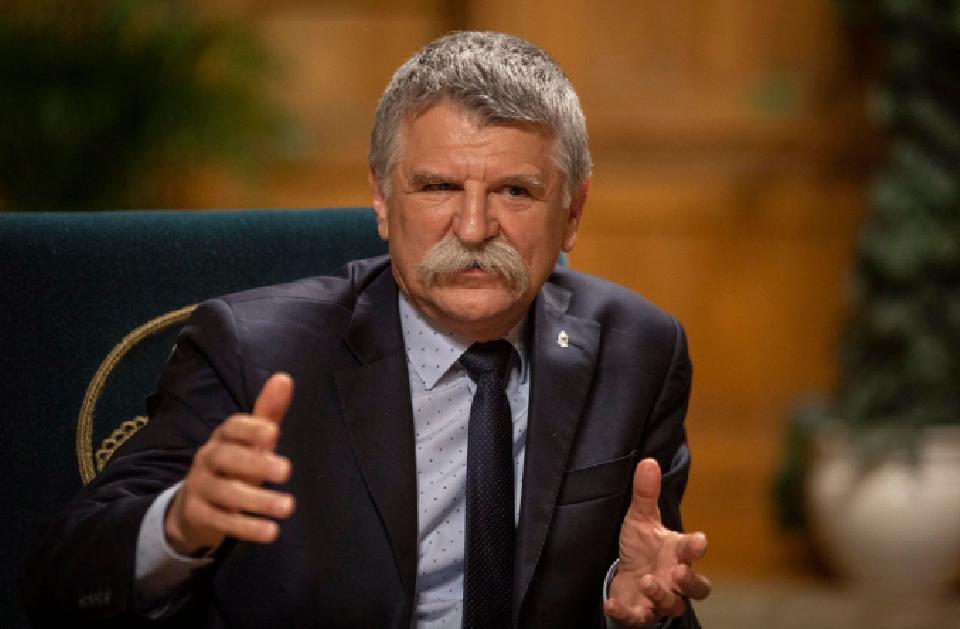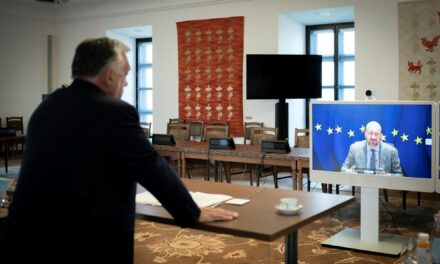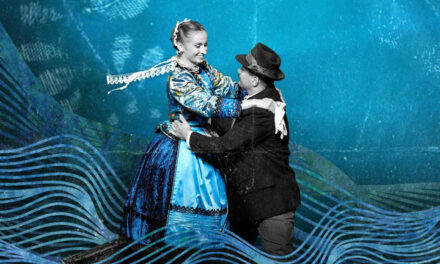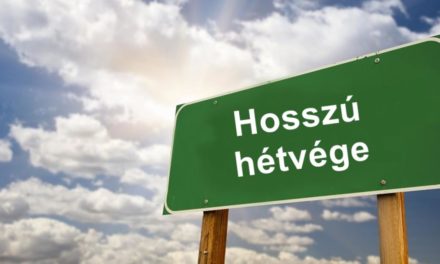Events with a tragic outcome can also be remembered with a celebratory spirit, if their moral content serves the growth of future generations - László Kövér told the Hungarian Nation on the occasion of the anniversary of the 1956 revolution, emphasizing that as long as Hungarians have a strong sense of history and we count our heroes , it is only a question of the historical situation to find out whether we have enough courage.
The President of the Parliament also emphasized that it is a shame for the entire opposition that Ferenc Gyurcsány still holds the leading role on the left.
– What does the 1956 revolution tell us today?
- After Trianon, after the Second World War, there was a moment of grace in the lives of Hungarians, when in the 1945 elections the nation expressed its desire to live in a democratic, civil society. Only 17 percent was won by the Communist Party, which nevertheless took power soon after - with the effective help of Stalin and the betrayal of the West.
After that came the horror of the Rákosi system, which meant unfathomable horror and idiocy at the same time.
For this reason, the historical energies accumulated since Trianon erupted from the Hungarians in 1956.
People wanted to live in a normal, sovereign country and shake off the communist yoke. Unfortunately, it soon became clear that we had no chance against the Russian tanks, and the Hungarians had to bury their dream of a free Hungary for many decades - but not forever. 1956 tells us that we must never deviate from our national goal, abandon action dictated by the desire for freedom, and lose hope. There is always hope, you just need to persevere and sooner or later we will achieve what we want.
– How much is history already, and how much is 1956 a part of our lives today?
"I think we are now reaching a turning point."
Few of those who lived through the revolution are left among us, but our generation, talking with their parents - or in our case with Mária Wittner and my brother János Horváth - heard about the historical events in such a way that what they told us was passed on as directly experienced history. personal experience.
When our grandparents and parents told us about their lives, they gave an experiential account of our history. Among our children, only the lucky exceptions of their grandparents died from the events of '56, and for those younger than them, this opportunity was not even given. 1956 was not processed in the sense that it could have become a collective liberating experience. Those who were on the barricades and those who shot at them with foreign weapons grew old side by side, in beautiful silence and without justice. It will be a long time before the historical significance of this event is in place, like 1848 or the founding of the state of St. István, the interpretation of which is no longer disputed. 1956 is still here without us knowing it, our social conflicts and neuroses are partly rooted in the antecedents and consequences of the revolution.
- Is there a story related to the revolution in your family?
- My father was a soldier in Budapest during the revolution. He was enlisted for two years, but during the march his term of service was increased to three years. It wasn't dismantled after that either, so it stuck in the capital. On one occasion, he went to town as a truck driver to get food, but by the time he got back, the Russians had shot up the barracks and the soldiers had scattered.
My father looked for his military record from the pile of documents and walked home to Pápa, so he did not directly participate in the revolution.
– What do you think about the fact that our national holidays are mostly linked to tragedies?
How can you see something to celebrate in sad events? – It is not clear to me that it is a problem that we have such a history and that our holidays are sad. The advantage is not necessarily for those who had an easier fate and thus did not have to interpret their own history thoroughly. Here, in the Nándorfehérvár hall of the Parliament, on the fresco depicting the triumph of János Hunyadi in 1456, the inscription reads "Hungary is the bastion of Christianity".
The painting is flanked by the emblematic cathedrals of Europe. This picture could have been painted even after 2015. All that happened was that we had already experienced what is happening in Europe once, and that's why we were able to better interpret it when large crowds appeared at the border and started walking west on the highways. The inscription quoted above is not a moral certificate issued about ourselves either, but others said this about us before, when, if they did not help us, at least they still recognized the sacrifice we made morally. In the struggle against the Ottoman Empire, Hungarians almost collapsed demographically, and this culminated in Trianon. Even a fall can be remembered with a celebratory spirit, if it has a moral value, a sacrifice that sets an example, and thus future generations can be more thanks to it. The final phase of 1956 was a tragedy, but the first days of the revolution were glorious.
It was not by chance that the disillusioned communist Albert Camus said that the Hungarians did more for their freedom than any people in the world. Others have also said of us that we drove the first nail into the coffin of communism. The system change in 1989-90 was also thanks to the heroism of those who participated in the revolution, even by giving their lives.
- Don't you mind that we didn't "like to make a revolution"?
- Let's think about whether there are other peoples besides us here in Central and Eastern Europe who tried to assert their rights without violence. We can't find one. So the question is, did those who were peaceful fare better, or those who acted violently on occasion?
The Albanians in North Macedonia have their own state university, the Gagauz in Moldova have autonomy – at least on paper – and the Hungarians in Transylvania have none.
Apparently, our peaceful attitude did not pay off. At the same time, we are not only a nation of soldiers, but also consider ourselves a nation of lawyers. With some naivety, we always tried to fight for our right by legal means, and we did not understand that, if we are right according to the law, what moral and legal basis does the person who does not recognize this rely on.
It took until 2010 for us to understand that politics is basically a game of forces, in which the one who can assert his point of view is right. Thank God, since then we have been able to prove that our interests can be decisively asserted through democratic and peaceful means, even more so than what would follow from our strength and political weight. But it doesn't hurt to be careful, so that tolerance for peace doesn't appear to be bad luck in the eyes of our political opponents.
You can read
the article in its entirety Image: Soldier Vanda












